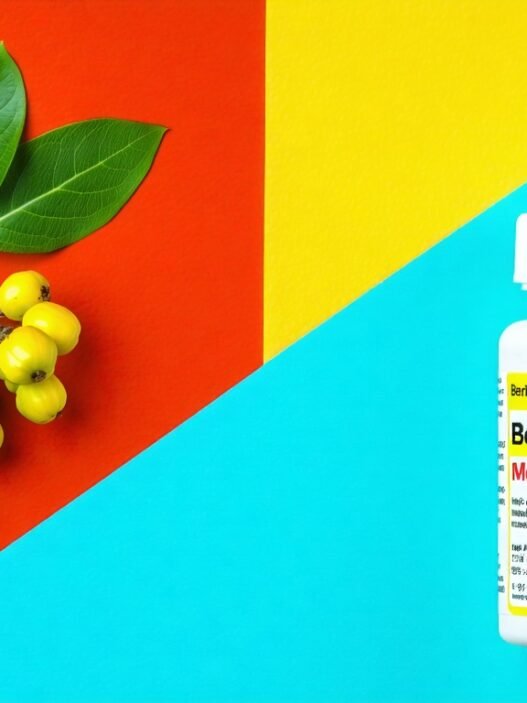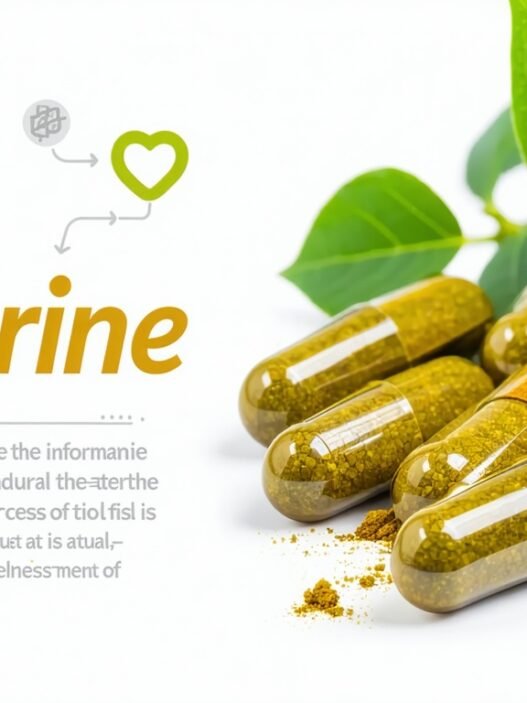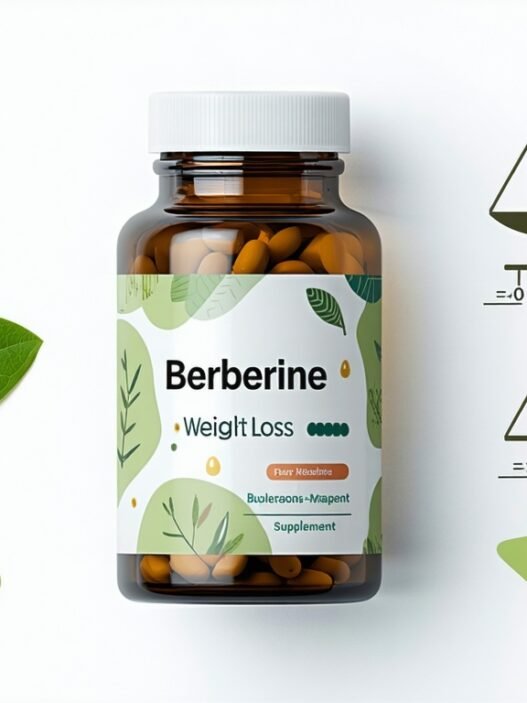Berberine’s Anti-Aging Potential
Extending Lifespan and Aging Mechanisms
Research suggests that berberine has the potential to extend lifespan and influence aging mechanisms significantly. In studies involving C. elegans, berberine demonstrated multi-target synergistic antioxidant effects, enhancing resistance to oxidative stress via the insulin/IGF-1 signaling pathway. This suggests that berberine may help slow down aging at a cellular level, allowing for healthier longevity.
Moreover, biological age, which reflects accumulated molecular damage leading to diseases, is increasingly recognized as a key marker to assess anti-aging strategies. Differences in biological age can occur years before the emergence of age-related diseases, underscoring the importance of early interventions to slow the aging process (NIH Research Matters).
Impact on Cellular Aging
Berberine also shows promise in mitigating cellular aging by activating the AMP-activated protein kinase (AMPK) pathway. This activation reduces mitochondrial reactive oxygen species (ROS) production and improves energy metabolism. By enhancing the activity of crucial antioxidant enzymes like superoxide dismutase (SOD), catalase (CAT), and glutathione peroxidase (GPx), berberine protects cells from oxidative damage, thus contributing to overall cellular health. This mechanism may play a vital role in preventing various age-related diseases, including neurodegenerative disorders and cardiovascular conditions.
Research findings illustrate that berberine’s role in managing oxidative stress and enhancing antioxidant enzyme activity may offer an effective approach to target age-related conditions. Understanding these berberine anti-aging mechanisms provides holistic wellness followers with insights into how this compound can positively influence health and longevity.
Health Benefits of Berberine
Multifaceted Health Improvements
Berberine offers a wide array of health benefits, positively impacting various bodily functions. Clinical and experimental studies have demonstrated its pharmacological properties, which include immunomodulatory, antioxidative, cardioprotective, hepatoprotective, and renoprotective effects. This versatility makes berberine a valuable addition to health regimens, especially for those interested in functional and holistic wellness.
Some of the notable benefits of berberine include:
| Health Benefit | Description |
|---|---|
| Cardiovascular Health | Supports heart health by improving cholesterol levels and regulating blood pressure. |
| Metabolic Support | Enhances glucose metabolism and insulin sensitivity, aiding diabetes management. |
| Anti-aging Properties | Offers mechanisms that may help in delaying cellular aging and promoting longevity. |
| Gut Health | Improves digestion and inhibits the growth of harmful intestinal bacteria. |
Anti-microbial and Anti-inflammatory Effects
Berberine exhibits powerful antimicrobial properties, effectively inhibiting the growth of various pathogens, including Staphylococcus aureus, which is known to cause several health issues. Its ability to inhibit harmful bacteria makes it a crucial component in promoting overall health and preventing infections.
Furthermore, berberine also plays a significant role in mitigating inflammation in the body. This anti-inflammatory effect can contribute to improved health outcomes, particularly in chronic conditions characterized by inflammation. Berberine’s multifaceted nature enables it to not only combat infections but also to provide relief from inflammation, making it an essential element in holistic wellness practices.
Berberine is beneficial for individuals looking to enhance their immune system. These features underscore berberine’s relevance in functional medicine and its growing recognition in the wellness community for its diverse health benefits.
Berberine and Heart Health
Berberine has gained attention not only for its anti-aging mechanisms but also for its favorable impact on heart health. Understanding its effects on cholesterol management and blood pressure can provide insights into its broader health benefits.
Cholesterol Management
Research indicates that berberine may significantly help in lowering LDL (low-density lipoprotein) cholesterol and triglycerides, thereby reducing the risk of heart disease. In a study involving Chinese men, participants experienced notable reductions in total and LDL cholesterol levels after taking berberine.
| Cholesterol Type | Effect of Berberine |
|---|---|
| LDL Cholesterol | Decrease |
| HDL Cholesterol | Increase |
| Triglycerides | Decrease |
This reduction in LDL cholesterol, combined with an increase in HDL (high-density lipoprotein) cholesterol, highlights berberine’s potential as a natural aid in managing cholesterol levels and promoting cardiovascular health.
Berberine is also known to contribute to improved glucose metabolism and insulin resistance, which can further aid in managing cholesterol levels. Studies suggest that it possesses a hypolipidemic effect, particularly beneficial for individuals with type 2 diabetes mellitus.
Blood Pressure Regulation
Apart from its cholesterol-lowering properties, berberine has also demonstrated potential in regulating blood pressure. Although specific studies on its direct effects on blood pressure are still emerging, its roles in improving overall cardiovascular metrics suggest a favorable outcome for blood pressure management.
Berberine’s ability to enhance glucose metabolism and manage lipid profiles contributes to its beneficial effects on blood pressure. This compounded benefit underscores its utility for those seeking to maintain heart health as part of their anti-aging regimen.
For more insights into how berberine can support overall health, refer to articles about berberine benefits and its numerous health improvements.
Berberine and Metabolic Health
Berberine has shown remarkable potential in managing various aspects of metabolic health, particularly concerning diabetes and Polycystic Ovary Syndrome (PCOS). Its unique properties may contribute significantly to improving health outcomes in these areas.
Diabetes Management
Research indicates that berberine can significantly enhance diabetes management by improving insulin sensitivity and optimizing blood lipid levels in individuals with type 2 diabetes. Studies have demonstrated that berberine positively influences glucose metabolism, insulin resistance, and glucose utilization in tissues. This can lead to reductions in LDL cholesterol levels, which is particularly beneficial for those managing diabetes.
Further findings suggest that berberine may lower blood sugar levels by stimulating glucose uptake in cells. This mechanism involves key pathways such as AMPK and p38 MAPK, contributing to enhanced overall insulin sensitivity. It is important for individuals taking berberine alongside diabetes medications to monitor blood sugar levels closely, as berberine could interact with these medications and cause hypoglycemia.
| Study Outcome | Berberine Effect |
|---|---|
| Insulin Resistance | Significant improvement |
| LDL Cholesterol | Reduction achieved |
| Blood Sugar Levels | Decrease in levels observed |
Polycystic Ovary Syndrome (PCOS) Benefits
In the context of Polycystic Ovary Syndrome (PCOS), berberine has been shown to provide noteworthy benefits. In clinical comparisons involving berberine, metformin, and myoinositol, berberine produced greater reductions in clinical, hormonal, and lipid metrics than the other two treatments. This positions berberine as a potential alternative therapeutic option for women with PCOS seeking to manage symptoms more effectively.
Berberine’s multifaceted action not only improves hormonal balance but also tackles various metabolic dysfunctions that often accompany PCOS. As it continues to gain attention for its therapeutic effects, berberine is recognized as a valuable compound in managing both diabetes and PCOS in holistic wellness programs.
For more information on the broader berberine benefits, including its role in gut health and inflammation, feel free to explore other sections of this article.
Berberine Considerations
Berberine, while beneficial, has important considerations regarding potential interactions with medications and possible side effects. Understanding these aspects is crucial for those who wish to incorporate berberine into their wellness routine.
Interactions with Medications
Berberine can significantly affect the metabolism of various medications in the body. This is particularly relevant for medications that undergo breakdown by the liver. The presence of berberine may alter the effectiveness of the following classes of drugs:
| Medication Types | Interaction Effects |
|---|---|
| Diabetes Medications (e.g., Metformin) | Berberine may increase metformin levels, potentially altering its effects. (WebMD) |
| High Blood Pressure Medications (e.g., Losartan) | Berberine might decrease the activation of losartan, reducing its intended effects. (WebMD) |
| Anticoagulants | Increased risk of bruising and bleeding due to berberine’s ability to slow blood clotting. (WebMD) |
| Sedatives | May amplify the effects of sedative medications, requiring careful monitoring. (WebMD) |
| Immunosuppressants (e.g., Cyclosporine) | Berberine might increase the effects and side effects of cyclosporine by decreasing its breakdown. (WebMD) |
Individuals should consult healthcare professionals before combining berberine with these or any medications to avoid unintended interactions.
Potential Side Effects
While berberine showcases numerous health benefits, it is not without potential side effects. Some reported adverse effects include:
| Side Effect | Description |
|---|---|
| Gastrointestinal Issues | Symptoms such as bloating, diarrhea, and constipation may occur. |
| Hypoglycemia | Individuals taking diabetes medications may experience lower blood sugar levels due to the combined effects of berberine and medications. |
| Allergic Reactions | Some individuals might experience skin rashes or itching after taking berberine. |
Monitoring for any side effects is advisable, particularly during the initial phases of incorporating berberine into a health regimen. Individuals interested in further exploring the berberine anti-aging mechanisms should ensure they are informed about both the benefits and potential drawbacks of this supplement. For detailed information on health benefits, visit our article on berberine benefits.
Berberine and Cognitive Health
Effects on Cognitive Decline
Berberine has shown significant potential in combating cognitive decline, particularly in aging individuals. Research indicates that berberine treatment can improve spatial learning and memory, especially in models of cognitive decline induced by D-galactose. In these studies, berberine not only enhanced cognitive functions but also modified levels of aging-related markers in the brain, making it a promising candidate for addressing age-related cognitive dysfunction (PubMed Central).
Molecular Pathways and Improvements
The mechanisms through which berberine exerts its cognitive benefits are closely linked to several critical molecular pathways. A total of 386 target proteins associated with cognitive dysfunction have been identified, with key pathways including PI3K-AKT and MAPK PubMed Central.
Berberine’s efficacy is supported by molecular docking studies demonstrating strong binding to important targets such as Mapk1, Src, Ctnnb1, Akt1, Pik3ca, Tp53, Jun, and Hsp90aa1. These interactions suggest that berberine may modulate these targets to enhance cognitive function. The validation of these pathways and targets was also confirmed through RT-qPCR analysis, reinforcing the notion that berberine has the potential to improve cognitive health by targeting multiple biological processes related to aging (PubMed Central).
In summary, berberine’s anti-aging mechanisms extend beyond mere longevity and delve into improving cognitive health through well-defined molecular pathways. To explore more about berberine anti-aging mechanisms and its applications in overall health, consider reviewing additional resources on berberine benefits and related topics.





















